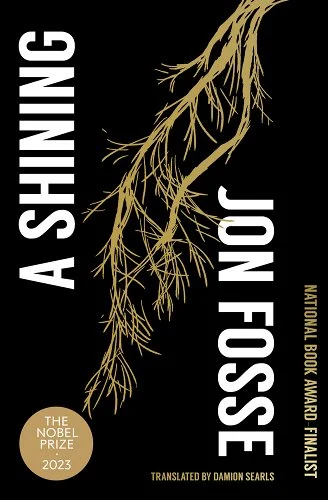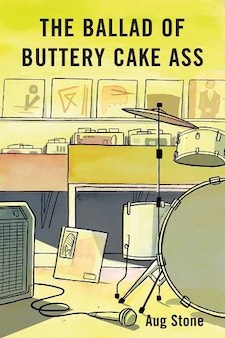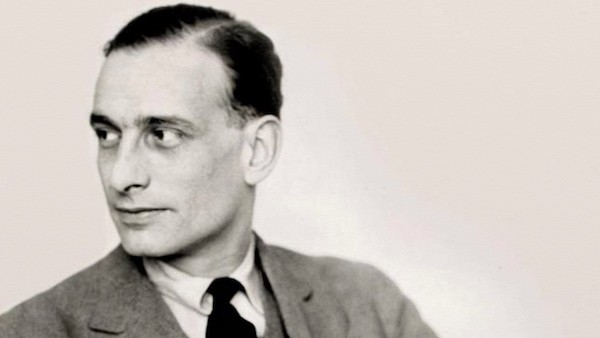I arrogantly recommend… is a monthly column of unusual, overlooked, ephemeral, small press, comics, and books in translation reviews by our friend, bibliophile, and retired ceiling tile inspector Tom Bowden, who tells us, ‘This platform allows me to exponentially increase the number of people reached who have no use for such things.’
Links are provided to our Bookshop.org affiliate page, our Backroom gallery page, or the book’s publisher. Bookshop.org is an alternative to Amazon that benefits indie bookstores nationwide. If you notice titles unavailable online, please call and we’ll try to help. Read more arrogantly recommended reviews at: I arrogantly recommend…
 Klan War: Ulysses S. Grant and the Battle to Save Reconstruction
Klan War: Ulysses S. Grant and the Battle to Save Reconstruction
Fergus M. Bordewich
Knopf
In 2016, three organizations—Public Policy Polling, YouGov, and The Economist—conducted surveys which found that 20% of voters thought endling slavery was a bad idea; higher numbers showed even more support for Japanese internment camps and the display of Confederate flags. More recently, the 14th Amendment—created in response to the South’s collective hostility to emancipation—long detested by pro-slavery backers—read “states’ rights” advocates—because the 14th Amendment promises equal protection under the law and prohibitions against insurrectionists (i.e., Confederates) from holding public office. If you’d like to see what could happen again in the U.S. when thugs got their way and the factors that then (and potentially still now) stopped (momentarily) their continuance, Fergus M. Bordewich’s well-researched, organized, and written account offers enough historical parallels between then and now to frighten any reader, even though Bordewich probably began outlining this book long before any historical likenesses to the present manifested themselves.
After the Civil War, federal troops moved into the former slave-holding states to maintain order while the state and local governments went about fulfilling requirements needed to permit their re-entry into the Union. Formerly wealthy slave holders—often holding top positions in state and local government as well as practicing such professions as medicine and law—resented their loss of free labor; thus, they encouraged, paid, or otherwise coerced white working-class men to beat, rape, castrate, torture, and kill freedmen and -women and the white folk who supported them (primarily Republicans of the day), allowing these wealthy men to get away with instigating murders. Not that these men had much to fear legally, anyhow. Local sheriff’s departments, and local and state judiciaries and legislative offices were often lead by avowed racists and—once it became a national organization—members of the Ku Klux Klan.
Federal troops found it difficult to prevent or punish lynchings and other physical and civic abuses since representatives of the states in which they occurred claimed that murder is not a federal-level crime and that states have sole claim to prosecuting them. The abuses Bordewich cites—often from the tens of thousands of pages of public testimony available in various federal archives—are repugnant and inexcusable. Page after page of much of this book reads like a catalog of human atrocities—atrocities many white men and women from all walks of life (save that of former slavery) endorsed and abetted without a second thought. It’s hard to come away from Klan War and see the issue of “states’ rights” as anything other than a ploy to debase the human rights of some despised group of people within a particular geographic boundary.
Andrew Jackson was no friend of human rights, let alone persons of color. While he was President, Southern states were able to abet the growth of terrorist behavior on the part of some whites against blacks. People who lived in the northern U.S. or its western free territories were tired of the war, incredulous when told of racist attacks in the South, and tired of paying taxes to maintain federal troops in the seceding states. Historian Fergus M. Bordewich’s Klan War traces the origins and rise of the Ku Klux Klan after Lincoln’s assassination and Andrew Johnson’s ambition to destroy any southern reconstruction efforts that included civil rights for blacks.
But during the presidential campaign season, Democrats rejected Andrew Johnson’s bid for another term since he was isolated from Congress and transparently had no interest in upholding the rule of law if it countered his racist views. Throughout the South, the Klan went on rampages against Republicans, black and white—but mainly black; killing with impunity and otherwise intimidating voters from electing Republicans. Despite the hundreds of men, women, and children the Klan murdered, tortured, and wounded, Grant won the election as a Republican, and dozens of black politicians won elections at state and local levels throughout the south. The author’s state-by-state research into murders often reads as a mind-numbing list of atrocities committed by men hostile to civil rights, eager to deny then—as even today—the rights to blacks granted by the 14th amendment. It is simply morally repugnant to read of whites then—and now—refer to themselves as victims of emancipation. Although whites complained about blacks stirring up unrest and attacking innocent whites, they never produced a body, but wherever the Klan went, they piled up bodies on the street, hung them from a tree, and dumped them in a river.
Grant was a person of the type that seemed to be the sort whose actions positively affected the lives of millions: The man who had been agnostic on the issue of slavery and civil rights until confronted with it. Once encountered, these men then devoted their energies towards prosecuting those racists who harmed others. Grant had a tough battle ahead of him. Crushing the KKK ultimately required the suspension of habeas corpus in nine counties of South Carolina’s, where murders and lynchings were most egregious. The very facts that show how effective federal agents were in arresting and charging members of the KKK with various civil crimes also show why its success was its downfall: The number of KKK members charged with various federal infractions was in the thousands. Per state. None of the states had the legal staff to prosecute the cases; none had jails and prisons large enough to house the accused and convicted; and no taxpayer, North or South, wanted to pay for these over the course of the man years it would take to see their fruition.
In the end, the federal government succeeded in breaking up the KKK. However, the South’s racists never renounced their views or behaviors, and the matter of states’ rights won in the courts over the federal government’s ability to enforce its own laws. One hundred and sixty-odd years later, hostilities remain against equal protection under the law, presumably from people who are pro-insurrection and pro-states’ rights, in order to create a legal vacuum in which torts occur that violate civil rights as provided for in the 14th Amendment and the Bill of Rights—for those raped, castrated, tortured, and lynched: terrorist acts in the name of race.
 A Shining
A Shining
Jon Fosse / Damion Searls
Transit Books
A bored man takes an aimless drive through the Norwegian countryside, heeding the act of driving only enough to alternate turning left and right as each road ends, until his car gets stuck between two mounds of earth on a forest path, surrounded by pine trees and only an abandoned farmhouse in the distance. As he slowly emerges from his reverie of boredom, he realizes he has no idea where he is or how to get his car unstuck. His only option seems to be to leave his car and walk until he finds a house with someone in it and, maybe, a car or truck to pull him out. (Even in isolated parts of Norway, bus transportation makes car ownership unnecessary.) The time is late afternoon, the temperatures are cold, and the clouds begin dropping snow. The sky soon turns dark, the man realizes his increasing sense of chill and need for rest. Then he is approached by a shape, an outline in white, a shining form that slowly emerges from the distance, silently approaches him—in appearance neither male nor female, the white outline becoming the glow of a body—its arm wraps around his shoulder for a few moments; he closes his eyes, consoled, opens them again, and finds himself alone again, in the middle of nowhere, the clouds now scattered to allow moonglow and star shine to provide dim illumination of his surroundings.
Norway’s snow-covered forests offer Fosse a stage as severe in its starkness as any play by Beckett, the starkness beset upon by extremes in weather finding their equal in the emotional and spiritual extremes Fosse’s characters find themselves in: alone but never abandoned, a condition of being sometimes the only solace his characters have, a solace that doesn’t relieve them of doubts and anxieties but a solace that grants them moments of grace. The narrator of A Shining doesn’t find anyone to tow his car, but he presumably finds something better.
 The Young Man
The Young Man
Annie Ernaux / Alison L. Strayer
Seven Stories Press
A short essay by Annie Ernaux regarding a brief relationship she had thirty years ago with a man thirty years her junior, when she was 54. She finds herself surprised by the memories the affair stirs in her, memories of events from her life that occurred before he was born. She’s surprised both at how easily roused to jealousy he can be if he senses other men are interested in her and to outrage by her questioning his interest in women his age. Her success in landing a lover younger than her son encourages the flirtatiousness of other women her age toward younger men, and she notes the cultural hypocrisy that provokes arched eyebrows of disapproval from others when they dine out together that a man with a woman younger than his daughter would not arouse. The affair dies out with the prospect of a child between them: The possibility that Ernaux could have another woman’s oocyte implanted in her post-menopausal womb meets Ernaux’s memory of her abortion in 1963, when she was about the age of this young man, a story whose writing she had put off until her time with end. The affair ends when the book is born.
 Ædnan: An Epic
Ædnan: An Epic
Linnea Axelsson / Saskia Vogel
Knopf
The Sámi people are by tradition nomadic reindeer herders who occupied a region overlapping Sweden, Norway, and Finland. A little over a century ago, as these nations rationalized their boundaries and expanded the reach of technologies to include further rural outposts, the Sámi’s nomadic range was tightly circumscribed by prohibitions against crossing national borders (the Sámi were neither Swedish, Norwegian, nor Finnish), rivers dammed (whose fish the Sámi depended upon), and forced schooling (Sámi children were taken from their parents for the school year to live with strangers and encouraged for forget their customs and language). Ædnan (“the land” in Sámi) follows a Sámi family over the course of the past century, each chapter of this novel-as-poem told from the alternating viewpoints of various family members, usually the women.
Bibbi
have you also done
everything you can
—
To never
be taken for dumb
or primitive
for someone who
let themselves
be conquered
and has been too
obedient
The stories told here, the events that unfold, resemble other accounts from around the world of indigenous people torn from their centuries’-old patterns of cultural and economic practices, actively compelled to reject their language, arts, and religious practices. Whether in North America, South Africa, northwestern China, or Australia or—in the case of Ædnan—northernmost Europe, the (would-be) destruction of a people’s identity and sense of purpose leads to suicidal anomie in the face of ethnic hostilities. The Sámi are seen as stupid, emotionally incontinent, not fully human; they live on land no longer their own; they perform jobs they have no interest with equipment they don’t own; and, despite governmental lip-service to the contrary, they have no civil rights or legal claims against injustices to person or property.
How many times
hasn’t the radio
been the one
to tell me
that new facts
had been established
—
That I had always
been a danger to
my own children
just because I smoke
and am overweight
and uneducated
—
I have heard it said
so many times
—
That the children in this
country with the greatest
risk of facing
hardship
have mothers
like me
people such as we
have been Rolf
The struggle continues, the family of Ædnan assure us: Grandchildren are now asking to be taught (and sometimes teach themselves) the Sámi language, asking to learn how to make traditional Sámi clothing, and winning the occasional legal case to allow reindeer herding.
Linnea Axelsson’s poetic lines imitates the starkness of the Sámi’s landscape and the sparseness of their speech—a sensibility enriched in translation by Saskia Vogel’s limpid translation.
 Dark Satellites
Dark Satellites
Clemens Meyer / Katy Derbyshire
Fitzcarraldo Editions
Born in 1977 in East Germany, Clemens Meyer witnessed during his formative years the decay, death, and abandonment of its nominally communist culture and government. Dark Satellites consists of short stories testifying to the ruins of that past, borne on the backs of those compelled to live under its rule. Recurring motifs among the stories include abandoned railways (or recollections of former railway work), pairs of people who form loose friendships (some quality in one or the other character keeps the bonds from becoming close), men and women separated or divorced for unclear reasons, grandmothers and grandsons (real or imagined for either), abandoned factories and apartment buildings, industries and jobs that no longer exist, immigrants who start small businesses attracted by low rents, high crime rates (blamed on the immigrants) and drug addiction. All form melancholy observations by protagonists of downward-spiraling lives not their own but which could be: witnesses to declines in parallel lives, one track of which imperceptibly veered from the other at some indistinguishable point.
Aptly, the last story concerns an old Jewish writer, a communist in the Russian mold who survived the Nazis and battles against Spain’s fascists. A communist in the Russian mold who, like his comrades, looked forward to bringing socialism to Germany—a communism that demanded self-criticism of its members, but which never allowed itself to be criticized or admit fault in its own doings. A communism, in the hands of Stalin, that was deeply anti-Semitic, like the Nazi fascists they detested. A communism that, like the Nazi fascists they detested, was only ever bent on death and destruction, inculcating its members with fantasies and fables of noble heroism.
 Heat Death, No. 1: Artefact Insulam
Heat Death, No. 1: Artefact Insulam
New Juche
Gallows Fruit
The human-made islands that comprise the subject of New Juche’s most recent work are the late-19th-century cement structures erected by European imperialist corporations and government entities in response to denuding Thailand of its natural resources, tin in particular. During the pandemic, when the Thai government had shut down almost everything, New Juche decided to explore such places as Phucket and Patong, now known to the rest of the world for their beaches and prostitutes, the draw of tourism having replaced tin as Thailand’s main source of revenue. New Juche discovers—and records with ample photographs—an endless series of abandoned buildings, abandoned first by their shop and bar owners after the government-ordered shut-down, then stripped by thieves of every material that could be sold as scrap, then inhabited by the homeless, and finally abandoned by even the homeless—none of these buildings have access to electricity, and their only amenity to creature comfort is shade from the sun and protection from the rain. This is ruin porn in its most degraded condition, in which a country has been reduced to serving as a toilet for the rest of the world.
 The Voyage of Horace Pirouelle
The Voyage of Horace Pirouelle
Philippe Soupault / Justin Vicari
Wakefield Press
Originally published in 1924 shortly before his collaboration with André Breton that ushered in Surrealism, The Magnetic Fields, The Voyage of Horace Pirouelle incorporates one major facet of Surrealism: the gratuitous act. Not gratuitous kindness—nothing related to serving others—but gratuitousness in satisfying personal whims, up to and including acts of fatal violence against others, whims utterly unprovoked beyond the desire to unmoor oneself from standard conventions of bourgeois life. Read at a distance of a century in a country where one or two mass murders occur daily, it’s difficult to not be anachronistically appalled by the privileged indifference toward humanity implied by the extreme ends of such a program and its hostility to the notion of personal consequences. Setting that qualm aside, The Voyage has interesting qualities beyond its existence as a prelude to Surrealism.
Jonathan P. Eburne’s introduction helps contextualize some of this slim novella’s elements: That Soupault lifted some of its events from other travel books at the time about travel to the North Pole, including the fact that its eponymous hero, Horace Pirouelle, is a black man from Liberia who, on a whim, decides to move to Paris then, again on a whim, travel to Greenland (not the North Pole). Robert Peary, credited with being the first white man to reach the North Pole, employed an assistant named Matthew A. Henson, a black man, who reached the North Pole ahead of Peary. Henson also had the ability to speak Inuit—unlike anyone else in Peary’s troupe. Both Peary and Henson wrote of their trek to the North Pole, travelogues Soulpault was familiar with and borrowed from.
But Soupault’s borrowings shape an effect that differs from those of his sources. To begin with, no one in Greenland seems particularly surprised to see a black man (only the Parisian friend of Pirouelle’s, who writes the introduction to Pirouelle’s travel notes, seems to find novelty in, one, a black man in Paris who, two, takes up a sudden interest polar exploration). This matter-of-factness applies not just to the fact of his blackness but also the fact that anybody would come so far to such an extreme terrain and climate without purpose—not the Inuit people he meets (including the woman who becomes his lover) or the French-speaking hermit whose quarters he shares for several months. Pirouelle, however, seems surprised by what he finds as the exotic habits and living conditions of the Inuit and the bizarreness of the terrain. Pirouelle’s taking up with an Inuit woman is as gratuitous as his impetus to traverse Greenland during the winter and as the firing of his pistol at night at the distant lights outside the igloo homes of the Inuit. His pistol’s loud report is interpreted by the locals as the clap of an Inuit god’s thunder preceding and explaining the deaths of those who wound up shot.
As time goes on, Pirouelle explores Greenland’s fjords and the deep, almost bottomless crevices carved into the soil by melting ice, snow, and rivers, and shares a hut with two other men who rarely speak, often drink, and eat canned provisions—several years of life lethargically hallucinogenic, a subpolar lotus land Pirouelle leaves as abruptly as he left Liberia.
 The Turkish Lady and Other Writings
The Turkish Lady and Other Writings
Jean Lorrain
Snuggly Books
Three short pieces from the Decadent era of French writing by Jean Lorrain, two stories of doubted love and one poetic essay on the physical decay of Venice. The tales, told by or from the position of a male protagonist, involve women who take agency in their erotic pursuits, or such agency as women of rank could discreetly pursue over a hundred years ago. But the women cut off the men’s engagement when the men show through their acts moments of doubt regarding the women’s true aims, their spiritual purity.
 Let’s Go Swimming with Mr. Sillypants
Let’s Go Swimming with Mr. Sillypants
M. K. Brown
NYRB Kids
I first encountered M. K. Brown’s illustration back in early 1970s when I was in my early teens and discovered National Lampoon, to which she contributed cartoons. As a guy, in my teens, I didn’t get her cartoons but I liked her jaggedy lines and strange stories told dead-pan. Combine those qualities with a sense of the absurd, and she can be read as a precursor to Roz Chast, although with Chast, the anxiety is always already turned up to 11.
Bringing her sense of whimsy to kids, Let’s Go Swimming with Mr. Sillypants—originally published in 1986 and brought out again now by NYRB Kids in full-color hardcover—focuses on the aptly-named Mr. Sillypants, whose emotions follow an arc from exuberance for signing up to take swimming lessons to dread from imagining looking foolish in front the class if he can’t do what they can. Coming to the rescue and buoying him up when he most needs it is the moment when his fears give in to his greater anger at having allowed himself to needlessly fear. And of course, all ends happily for Mr. Sillypants—and for any other anxious swimmer-to-be who meets up with this tale.
 A Practical Guide to Levitation: Stories
A Practical Guide to Levitation: Stories
José Eduardo Agualusa / Daniel Hahn
Archipelago Books
This collection of stories with Lusophone protagonists from Brazil, Portugal, and Angola conjures the counter-intuitive attitudes of its citizens who live in distant, isolated towns and villages in which magical thinking is woven into the fabric of lives of unexpected events and consequences, places in which animism meets Catholicism. (The author, José Eduardo Agualusa, is from Angola.) In “The Tree That Swallowed Time,” for instance, a man named Sérgio, who buys land to preserve baobab trees, is told of a bewitched tree, a mulemba, which the locals had been unable to cut down. It turns out that the tree had grown around and engulfed a safe. Sérgio’s assistant, Aristóteles, “studied the tree, rapped on the side of the safe three times with his knuckles,” and tells Sérgio,
“You can cut into it with a blowtorch. Easy.”
He went to the car to fetch the blowtorch. Sérgio sat down on a stone, in the shade of the mulemba, to roll a cigarette, and by the time Aristóteles had returned he’d already changed his mind:
“We’re going to leave the safe as it is.”
“You don’t want to know what’s inside?”
“A mystery—that’s what’s inside. As long as we don’t open the safe, we’ll always have a fine mystery. If we open it, I don’t know what we’ll have. Most likely nothing that interesting.”
Mystery seems reason enough for accepting life as it is. In “On the Perils of Laughter,” a narrator considers buying a lizard, and asks the price (it’s in a highly inflated currency, almost worthless). Although he finds the price reasonable, he still wants to dicker. So he strikes up an argument with the lizard’s vendor about the lizard’s attributes:
“Five million? For five million they’d have to talk. . .”.
The old man looked at me, very serious:
“Well, they do talk but not very much, man, it’s true. But they do laugh a lot.”
They laugh, the lizards?! At what? The old man shrugged. He didn’t know. They laughed randomly, like lunatics, they laughed at one another while they sunned themselves. That answer alone, I though was enough to earn the old man his money.
Mysterious events in Agualusa’s “magical” stories reveal a kinship with García Márquez, whereas events of mysterious ambiguity fall into Bolaño’s camp, as in “The Good Despot,” narrated by an erstwhile Angolan rebel and revolutionary, whose strategic rhetoric has served him well over the decades. While his former comrades, less subtle about their political beliefs, are in prison or dead, he has become rich and in charge.
On May 27th 1977, there was an uprising against the president’s leadership. The coupe, which enjoyed the support of the Soviet Union, was quelled in just a few hours, thanks to the intervention of Cuban troops. The president took advantage of this pretext to arrest anyone who challenged him, right and left, inside and outside of the party. Many hundreds of unfortunate individuals, thousands perhaps, were shot. Weeks earlier they had given me the task of carrying out an investigation into the possible existence of a fractionist wing in the party. I wrote a long and detailed report that has been read and reread, studied, discussed, over the decades, by political scientists, historians, linguists, experts in semiotics, philosophers, psychologists, graphologists and psychoanalysts. To this day, nobody has been able to ascertain whether I was on the fractionists’ side or the president’s. It is possible to maintain one’s silence—a convulsive kind of silence—while still seeming verbose.
Suspension of disbelief is a requirement in some cultures for extending the likelihood of personal survival and enjoying the life one has been given. Daniel Hahn’s translation successfully conveys that straight-faced equanimity needed for staring absurdities in the eyes.
 Getting Huge
Getting Huge
John Young
Guernica World Editions
John Crackstone is a pastor for a Congregationalist church in Concord, Massachusetts, a posh suburb of Boston. At age 48, he is feeling unappreciated by his wife and congregation, is losing his sense of drive and mission (abetted by deacons who resent Rev. Crackstone’s efforts to focus on the needy), feels increasing regret at having agreed to take over his father’s congregation—who was a much more liked reverend than he—and so forth: More than enough disappointments to spur a mid-life crisis, especially when catalyzed by his attraction to an attractive neighbor (and church congregant) and a flimsy plan to break free of his state of anomie by selling expensive pumpkin seeds. The neighbor he is attracted to, named Carol, is also increasingly disenchanted with her life in a community focused on wealth and prominent connections. Their spouses are clearly unhappy with life, too: John’s wife with being under the spotlight as a reverend’s spouse and a never-ending cycle of church duties and motherly responsibilities to their two kids.
Enter Jack Corbett, John’s closest friend from seminary school who dropped out of the ministry after having an affair with a congregant and being forced out of the church he ministered to. That debacle led him to the world of tech start-ups, where he became a multi-millionaire after starting and selling four companies. He ended up divorcing the woman he had an affair with and has been single ever since. He’s now in town for a job interview after the last company he owned went belly-up. He’s trim and fit for his age, too: A seemingly perfect match for Carol, if she’s interested in a man without baggage. John wants to steer him away from Carol for his own selfish reasons toward investing in his pumpkin seed idea.
A lot of unresolved issues for John to confront—or not, if he chooses to walk away from it all. What’s to stop him? There’s a happy ending to this tale and affecting moments as John faces his future.
 Conversational Therapy: Stories and Plays
Conversational Therapy: Stories and Plays
Nick Voro
VoroBooks
Nick Voro’s stories—tending toward the comic, several of which are noir-inflected with unreliable characters in dangerous situations—have ambiguous endings with something of the metaphysical or karmic about their endings: a retribution occurs for the narrator’s or protagonist’s misdeeds, less divine than a natural outcome of their world views. The endings aren’t revelatory of a new understanding come too late but of the fulfillment of a worldview already possessed and honed like a worry bead over the decades of their lives. The plays, too, are short, comic pieces in the same mode as the stories, although the last play, about a homeless man demanding money from an employed woman, has a serious component to it, with the most reality-based of the collection’s “what goes around” endings and doubtful implications for the beggar, not the woman unimpressed by his sob story. “A Keepsake Memory,” one of the stories, also features a triumphant ending for its kidnapped protagonist, the daughter of a corrupt progressive politician, whose hypocritical career may soon end.
 The Ballad of Buttery Cake Ass
The Ballad of Buttery Cake Ass
Aug Stone
Something about being a guy at one point in the last century meant that if you liked music, you would buy it. Obsessively. It was a great obsession for teenagers and adults of little means and became an exciting hunt when a tantalizing obscurity dangled before one’s covetous consciousness. The hunt for these rarities was just an excuse to visit new record stores, which might not have just what you’re after but if you’re lucky will have what you didn’t know you needed until now. In addition to the tunes themselves, matters of more or less equal importance had to do with the cover art, the name of the label, the name of the album, the people thanked, the song titles, the song sequence, the lyrics, the conditions in / under which the album was recorded, song lengths, alternative versions, and other trivia whose knowledge of can engulf a guy’s life.
The Ballad of Buttery Cake Ass is a cross between Roddy Doyle’s The Commitments and the film Spinal Tap, an ode to ‘80s-era record-collecting fetishes, with the band Buttery Cake Ass as the focus of a grail-like pursuit of their only two recordings, a 45, “Formaldehyde Hydro,” and a live album, Live in Hungaria, decades after the band flourished, by some ardent later-day collectors. Part of the band’s schtick is use of an abacus player (abacus connected to foot pedals and other sound-altering devices) while the drummer doubles on a pinball machine. During one of their recording sessions, a microphone is placed in an open refrigerator to catch the echo. Puns, references to song lyrics, and ‘80s bands abound here. Included among the weird tics of the fanbase are the far-fetched interpretations of lyrics that purportedly capture deep or hidden connections between the band’s songs and allusions to people who influenced them. (Do such recording techniques as placing a mic in a refrigerator allude Frank Zappa’s unconventional techniques for recording Captain Beefheart’s Trout Mask Replica, or is that a far-fetched interpretation?) The story follows the path of the band from origins and rehearsals to playing in bowling alleys; tensions rise and are resolved; romantic partnerships are struck up and marriages occur. The band may not make it, but their lives have been oddly enriched by the experiences.

